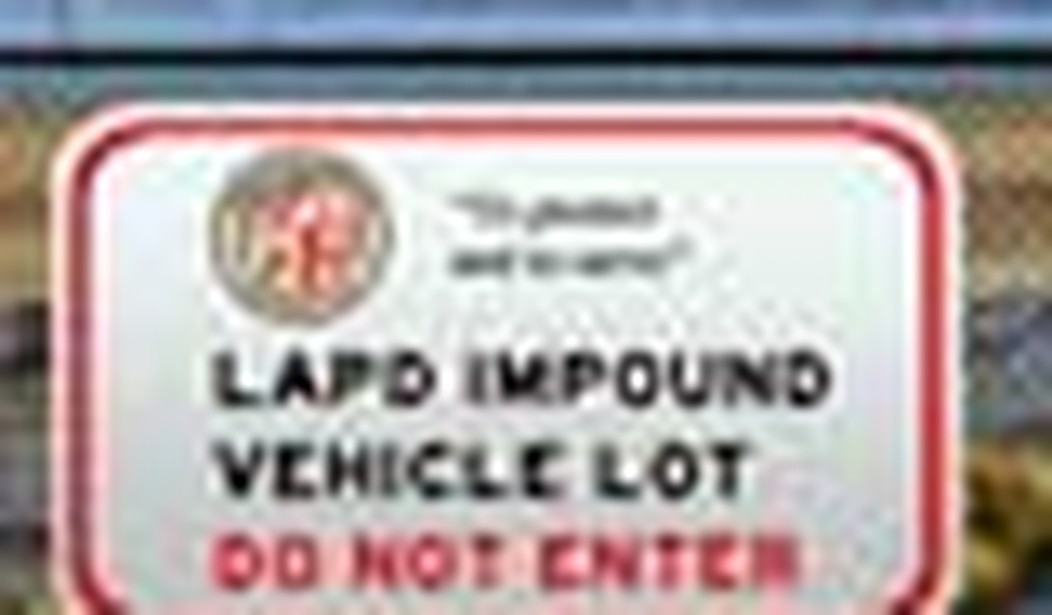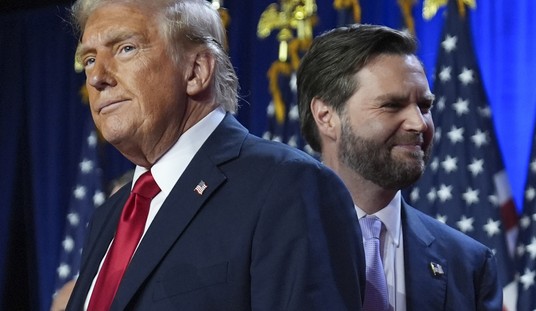When the vote finally came, the only question that remained was whether or not it would be unanimous.
It was a foregone conclusion that the Los Angeles police commission would rubber-stamp LAPD Chief Charlie Beck’s plan to all but ignore the California law that allows police officers to impound for 30 days any car they find to be driven by someone without a driver’s license. In the end, only one commissioner voted to oppose the measure, and in doing so he pulled away the veil of legitimacy and legality behind which Beck and the other four commissioners continue to hide.
The new policy, soon to be published in a “special order” to all LAPD officers, authorizes a 30-day impound only in those cases in which the unlicensed driver 1) has no valid identification, 2) has no proof of insurance for the car, 3) is driving an unregistered car, and 4) has no previous misdemeanor conviction for driving without a license. (A fifth condition, reluctantly added under pressure from the lone dissenting commissioner, demands that the driver have no outstanding warrant or record of failure to appear in court for driving without a license.)
On first reading the new policy sounds reasonable, but when one examines the underlying facts it becomes clear that the chief’s intent is that very few unlicensed drivers will lose their cars for 30 days, even those with multiple prior offenses. Chief Beck insists that unlicensed drivers must have valid identification in order to avoid a 30-day impound, but then says that officers will accept Matricula Consular cards, issued by consulates of foreign governments, as valid ID. As I wrote in my previous column, these cards are not a reliable form of identification, as explained by a top FBI official in testimony before a House subcommittee in 2003. Beck has also said officers will accept birth certificates, which of course bear no photograph, fingerprint, or any other data an officer might use to determine if the document is both genuine and belonging to the person who presents it.
The requirement for proof of insurance is also a sham. The California Department of Motor Vehicles will issue a registration certificate if proof that an insurance policy has been applied for. If that policy is later denied or canceled, the registration sticker still appears on the license plate, leaving police officers with no way of knowing the car’s registration has been revoked. And even if an officer discovers this fact through a computer check, all a stopped driver need do is present another application for insurance, the validity of which the officer has no way of verifying.
But perhaps the biggest insult to common sense is the new impound policy’s requirement that a driver have no previous misdemeanor conviction for driving without a license. The requirement that drivers in California be licensed is codified in Section 12500(a) of the state’s vehicle code, and a violation is alternately held as a misdemeanor or infraction in court. In practice, misdemeanor prosecutions under the section are extremely rare, especially in Los Angeles. A driver’s record may indicate several previous citations for driving without a license, but unless at least one of them was prosecuted as a misdemeanor and resulted in a conviction, that driver would not face a 30-day impound if he satisfied the other requirements of the new policy.
Alan Skobin, the lone “no” vote on the police commission, asked why such a serial scofflaw should benefit from the new policy. LAPD Assistant Chief Michel Moore, who has served as the front-man for the policy change, replied that if prior infraction convictions were used as a disqualifier for lenience, then too many drivers would be subject to having their cars impounded. In other words, because so many people break the law, we must blind ourselves to what the law actually says and instead interpret it to mean what we wish it to mean.
Also taking part in this charade is Los Angeles City Attorney Carmen Trutanich, whose office issued a nine-page letter to explain why the proposed change is lawful, this despite an opinion from the California Legislative Counsel Bureau stating that it isn’t. Making matters more interesting is the fact that Trutanich is running to succeed Steve Cooley as L.A. County district attorney. Cooley, who will retire rather than seek re-election, has reached the opposite conclusion from that reached by Trutanich, and managed to spell out the statutory and case-law reasons for that conclusion in a mere two pages. (Click here to read in PDF form.)
And it gets even more interesting. On the very day of the commission’s vote, in which the majority relied heavily on Trutanich’s legal advice, Trutanich received the endorsement of the L.A. County Federation of Labor, whose members and leadership have been vocal in support of the rights of illegal immigrants. The timing could not be more suspicious.
And, as if more were needed, there is even more evidence that the new impound policy is not, as its proponents have claimed, aimed at enhancing public safety but rather intended to ease whatever burdens might remain on illegal immigrants in Los Angeles. One reason for the change is the financial burden placed on illegal immigrants whose cars are impounded for 30 days. The associated storage fees can accrue to the point that many illegal immigrants are unable to pay to have their cars released, resulting in the loss of those cars through lien sales.
Responding to this, Commissioner Skobin pointed out that the money recouped by the impound garages through these lien sales averages out at about half of the fees they are owed. With this in mind, Skobin proposed an alternative in which the fees be cut in half, thereby allowing the spirit of the law to be observed while lessening the financial cost on those affected. Skobin may as well have been talking to an empty room. His suggestion was ignored by his fellow commissioners as they congratulated themselves for their compassion and fairness before voting in favor of Beck’s proposal.
Perhaps the most unctuous (though it’s a close call) was commission Vice President John Mack, who said, “While it may not be fashionable to some, [officers should] show some compassion. We’re talking about human beings. . . . Some of the comments suggest that only unlicensed drivers are the ones who are involved in accidents. I would suggest that that’s not the factual case.”
And no one would be foolish enough to say it was. What Mack would know if he had been listening to the debate is that 20 percent of drivers involved in fatal traffic collisions are unlicensed. If anything, it would seem that he and the other three commissioners who voted in favor of the change found it more “fashionable” to overlook such inconvenient statistics for the sake of furthering what is clearly a political goal. But in showing compassion for unlicensed drivers they have chosen to deny it to those who will become their victims.
And what will happen when, as will surely occur, one of the beneficiaries of all this compassion kills someone with a car he might otherwise not have been driving? We’re not even supposed to ask such questions, but don’t expect any apologies.










Join the conversation as a VIP Member